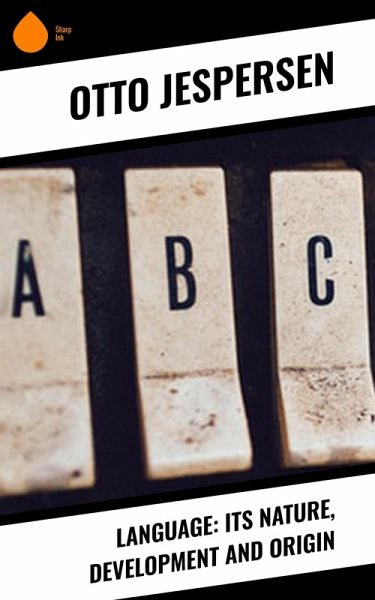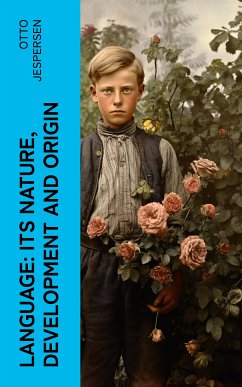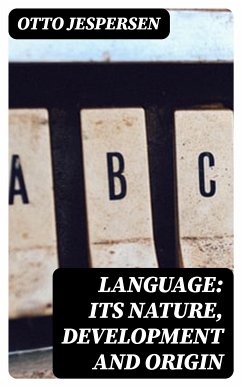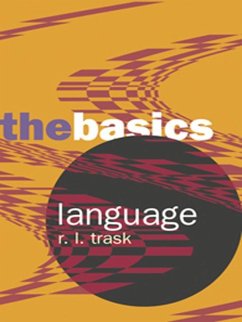
Language: Its Nature, Development and Origin (eBook, ePUB)

PAYBACK Punkte
1 °P sammeln!
In "Language: Its Nature, Development and Origin," Otto Jespersen embarks on a rigorous exploration of linguistic theory and evolution, presenting an expansive view of language as a living entity shaped by history, culture, and human psychology. Written in a clear, engaging style characteristic of scholarly works from the early 20th century, the book synthesizes contemporary theories while also delving into philological insights. Jespersen's context as a prominent linguist profoundly influenced his perspective, as he navigates through the intricacies of language structure, the evolution of var...
In "Language: Its Nature, Development and Origin," Otto Jespersen embarks on a rigorous exploration of linguistic theory and evolution, presenting an expansive view of language as a living entity shaped by history, culture, and human psychology. Written in a clear, engaging style characteristic of scholarly works from the early 20th century, the book synthesizes contemporary theories while also delving into philological insights. Jespersen's context as a prominent linguist profoundly influenced his perspective, as he navigates through the intricacies of language structure, the evolution of various languages, and the existential questions surrounding language's origin, offering a comprehensive framework for understanding how language functions as a fundamental aspect of humanity. Otto Jespersen was a pivotal figure in the field of linguistics, noted for his contributions to the study of English grammar and his role in the development of modern linguistics. His background as a Danish philologist and his engagement with contemporary linguistic debates, including those on historical and comparative linguistics, informed his views on language's dynamic nature. This scholarly perspective is evident throughout his work, as he intertwines theory with practical examples, making the discourse accessible yet profound. This seminal text is highly recommended for linguists, language enthusiasts, and anyone intrigued by the profound complexities of human communication. Jespersen's thoughtful analysis and engaging prose will not only deepen your understanding of language but also inspire further inquiry into the voices that shape our shared reality.
Dieser Download kann aus rechtlichen Gründen nur mit Rechnungsadresse in A, B, BG, CY, CZ, D, DK, EW, FIN, F, GR, HR, H, IRL, I, LT, L, LR, M, NL, PL, P, R, S, SLO, SK ausgeliefert werden.













